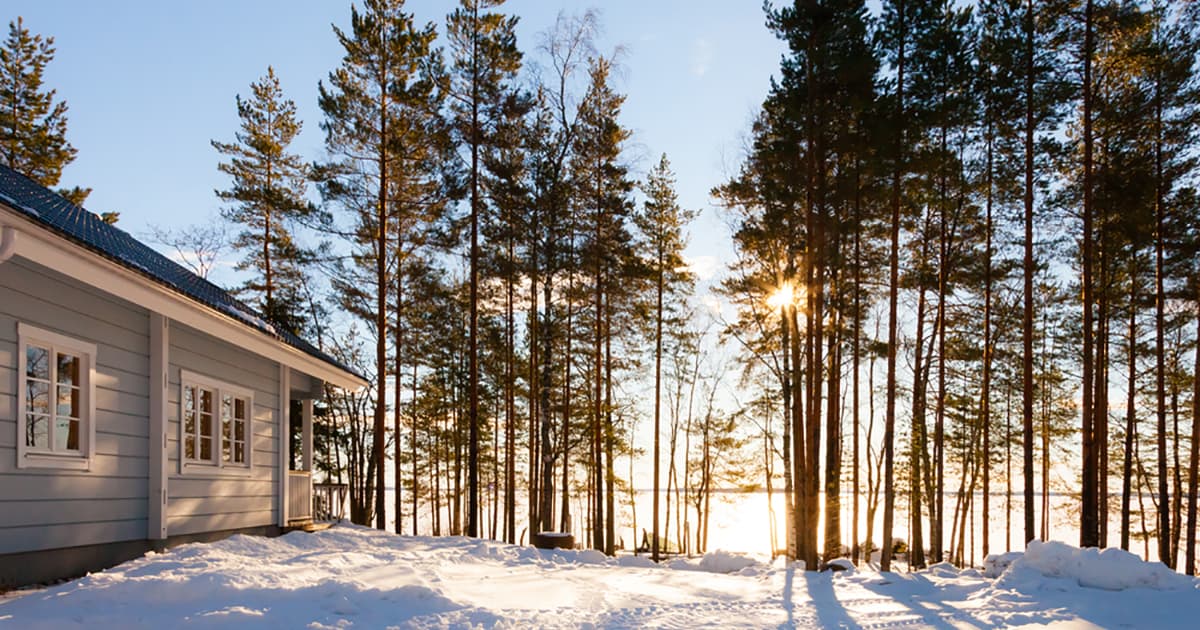Spending time at the cottage during the winter can be an excellent way to take a break from urban life. And, although there may be snow on the ground, there’s still the potential for a fire to break out inside if you have a wood-burning stove or fireplace. So no matter what the season is, you should always take the time to enforce fire safety rules and check that your cottage is well-equipped with the appropriate safeguards to prevent a fire from happening.
To have a safe and enjoyable time, here are some fire safety tips for your winter cottaging adventure.
Test Alarms Each Time
Every trip up to the cottage should include a fire alarm test. You can save yourself a lot of hassle by bringing a spare one with you and also some extra batteries, just in case.
Install CO Alarms
If your cottage is equipped with a fuel-burning appliance, make sure you install a carbon monoxide alarm. This deadly gas is odourless, so it can leak without any notice. Symptoms of CO poisoning can cause dizziness, nausea, and even death, if not detected.
Create a Fire Escape Plan
Everyone who visits your cottage should know what to do if the smoke detector or CO alarm sounds. Make sure there is an extinguisher around the cottage and let new visitors know about a fire escape plan, just in case.
Check Heating Appliances
If your cottage hasn’t been used in a while, it’s always wise to give the heating appliances a thorough look over. Check for any loose or damaged parts that could result in fire and have them replaced before using.
Inspect The Chimney or Wood Burning Fireplace
Damaged wood-burning stoves and chimneys can lead a fire. Check that the flues are operational and that there are no broken parts before operating.
Keep An Eye On BBQs
Before starting the BBQ, make sure to give it a good clean and remove any combustibles nearby. You should also never leave a BBQ unattended. If you have kids or pets, you may also keep them inside when you are cooking to prevent any avoidable incidents.
Check That You Have The Right Permits
Many municipalities require a permit to have an open-air burning fire, and some may not permit fires in the wintertime. So before you light a campfire, check with your local fire department or ministry of natural resources to find out what is allowed and what are the necessary requirements.
Don’t Toss Away Cigarette Butts
Cigarettes are often the result of forest fires, even in the wintertime as the air becomes much drier. If you must smoke, make sure that you smoke outside and dispose of the butts safely in a bucket and cover with water.
Pack An Emergency Kit
You should always have an emergency kit on hand at the cottage. In the wintertime, this should also include blankets, flashlights, flare guns, and extra warm clothing in case you have to vacate outdoors in the cold weather.
Fire accidents can happen even during the wintertime, so it’s important to always implement fire safety for your winter cottaging. And to ensure that your cottage is covered, you should have adequate insurance, too. At Rowat Insurance, we have the perfect plans to ensure your cottage is safe and secure for years of fun.Contact us today to learn more.
